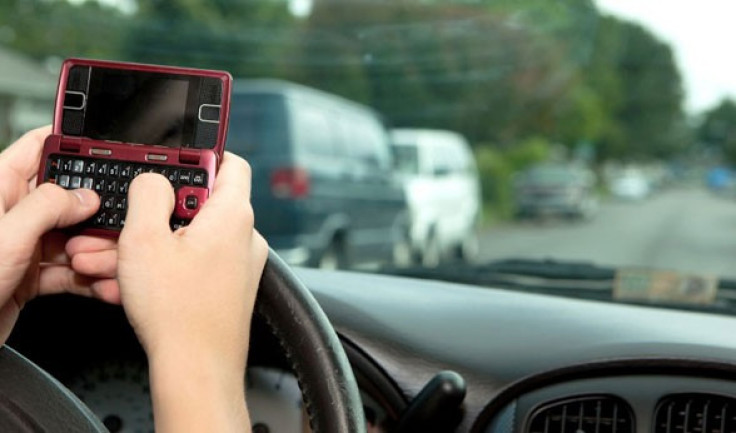Texting Drivers Take Eyes Off Road 5 Seconds On Average: Study

More than 5,000 people die each year as a result of being distracted while driving, and a new study indicates that teens and cell phones make for the most volatile combination.
The National Highway Traffic Safety Administration estimates that of all drivers under age 20 involved in fatal crashes, 16 percent were distracted -- the highest proportion of any age group.
Among the various distractions, ranging from talking with passengers to adjusting the radio, texting while driving was particularly perilous. A 2009 study focusing on drivers of larger vehicles and trucks concluded that texting raised the risk of a crash by 23 times compared with nondistracted driving.
Shockingly, texting drivers took their eyes off the road for each text an average of 4.6 seconds -- which at 55 mph, means they were driving the length of a football field without looking, said David Hosansky, author of CQ Researcher's Distracted Driving: Should Driver Texting and Cellphone Use Be Banned? report.
Even talking proved to be dangerous.
Experts ... say that talking on a cellphone while driving is far more distracting than talking with an adult passenger because it consumes additional cognitive resources, including creating a mental picture of the person on the other end of the conversation, according to Hosansky. Although some people may think they can safely talk and drive, researchers who observe people in driving simulators as well as in actual cars on the road find that a cellphone conversation will invariably intrude on a driver's attentiveness.
A Harris poll last year found that 59 percent of adult drivers admitted to talking on a handheld cellphone while behind the wheel, and 37 percent said they engaged in texting.
Ten states and the District of Columbia have banned handheld phone use by all drivers, and other states prohibit cellphone use by young drivers and school-bus drivers.
Yet, Hosansky wrote: [T]he distractions don't stop with cellphones. Carmakers are adding new technologies to the dashboard, such as Web browsers and GPS units. Carmakers say that such technologies are designed very carefully for safety, but safety advocates worry that they are creating even more hazardous driving conditions.''
© Copyright IBTimes 2024. All rights reserved.











